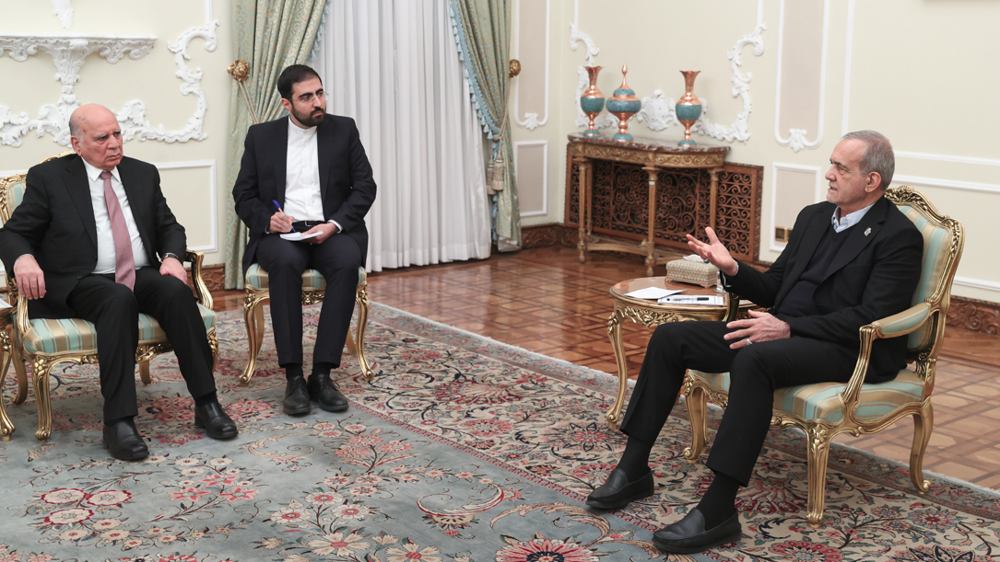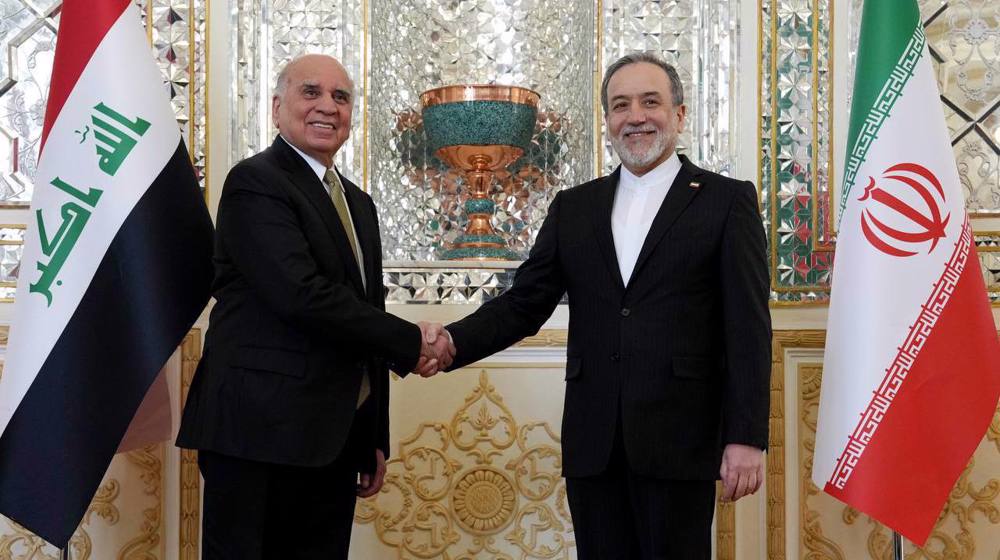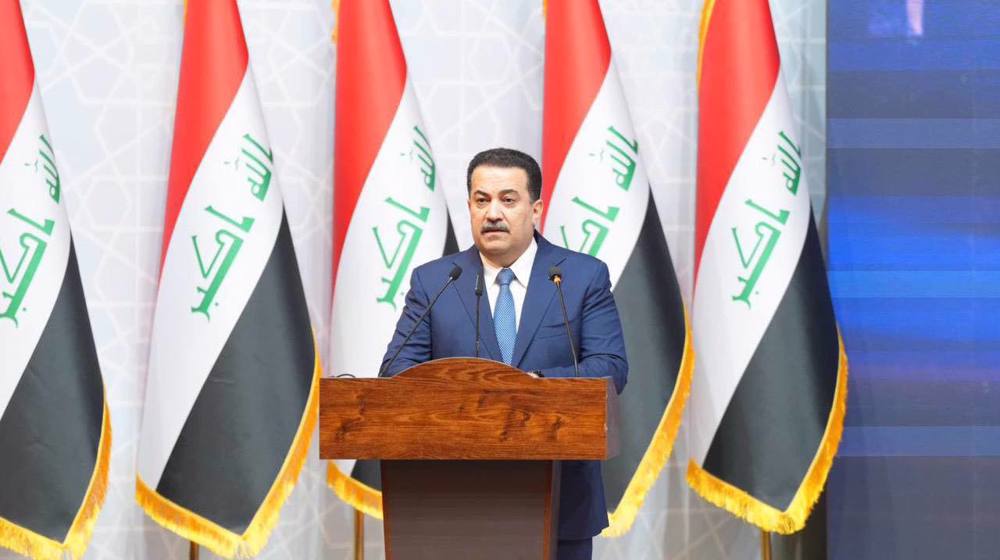Izadi woman collapses after confronting Daesh rapist
An Iraqi woman from the Izadi minority, held as a sex slave by Daesh, has confronted her tormentor on Iraqi television, sobbing and demanding an explanation for her suffering before she fainted.
The 20-year-old Ashwaq Haji Hamid was 14 when Daesh terrorists captured the Izadi ancestral heartland of Sinjar in northern Iraq in August 2014.
The Takfiri invaders went on to slaughter thousands of Izadi men and boys and abduct girls to be used as sex slaves. Hamid was abducted along with her family and taken to Syria.
“We arrived in Syria at midnight. We were worried and didn’t know what would become of us and whether we would be killed or not,” she said in an interview with Iraqi station al-Iraqiya.
“However, we took some comfort in being together — we would either live together or die together. But then they separated us from one another.
"There, in Syria, the Daesh terrorists separated all the girls above the age of nine from their relatives. We were taken to Mosul. We were 300 or 400 women in Mosul. We stayed there for three days and the Daesh men would come and see us. They would give us to one another as gifts or sell us for cheap.”
Hamid recounted how Daesh member Abu Humam selected her and then pulled her by the hair.
“I did not expect them to rape us because I was only 14. But they restrained us with iron handcuffs and violently raped us,” she said.
“He kept promising that he would let me go but then he would rape me three times a day and beat me three or four times a day. I was just a child and didn’t know anything.”
Hamid did not conceal her loathing for her tormentor, saying since she was not in a position to punish him, she wanted the government to deliver due justice for those who have suffered like her.
“Even if I was allowed to kill him, I would not want to get his filth on my hands, but I demand that the government do us right — it’s not just me, because who knows how many Yazidi girls he raped after me.”
State authorities saw to it that Hamid could see the rapist in a confrontation broadcast across Iraq.
“Abu Humam, look up,” she told the Daesh fighter who stood in front of her in a yellow prison uniform, his head bowed and his hands bound in front of him.
“Why did you do this to me? Why? Because I’m Yazidi? I was 14 years old when you raped me. Look up. Do you have any feelings? Do you have any honor? I was 14 years old, as old as your daughter, your son, or your sister.”
“You destroyed my life,” she continued, choking back her tears. “You robbed me of all my dreams. I was once held by Daesh, by you, but now you will feel the meaning of torment, torture and loneliness. If you had any feelings, you would not have raped me when I was 14, the age of your son, the age of your daughter.”
Hamid then collapsed as it all got too much for her to handle. The Daesh brute stood still all through the confrontation, only displaying a grimace of sadness.
Al-Iraqiya also interviewed Abu Humam about his treatment of Hamid, unabashedly saying that “she did not want it so I beat her to make her agree to the rape.”
Hamid revealed last year that Abu Humam had also made his way to Germany where she was stopped by her former slaver and rapist in the street in Stuttgart and said he knew where she lived.
She “wanted to leave Germany immediately” after the encounter, saying she “felt better staying in a refugee camp” in Iraq with her dad.
Last month, Turkey said it would send foreign members of Daesh back to their home countries in Europe after they were captured during Ankara’s cross-border offensive into northeastern Syria.
There are thought to be at least 10,000 detained suspected Daesh terrorists imprisoned in northeastern Syria, with another 100,000 family members kept displaced person camps.
Kurdish officials said last month nearly 800 Daesh prisoners had managed to escape from a prisoner camp after the Turkish offensive.
Extremists from across Europe joined Daesh in droves in 2014, when the Takfiri terror group launched its campaign of death and destruction in Iraq and Syria.
Back then, many European leaders ignored repeated warnings that the militants could return home one day and that they would be a serious security challenge across the continent.
They instead allowed their nationals to join the Takfiri terror outfit in the hope that they would help topple Syrian President Bashar Assad.
VIDEO | Press TV's news headlines
VIDEO | 100+ days of ceasefire: Israeli killing of Palestinians continue amid Intl. silence and impunity
VIDEO | EU split over new Iran sanctions amid claims of double standards
VIDEO | Gaza’s silent plague: Mysterious virus claims lives amidst total medical collapse
VIDEO | Growing transatlantic rift
VIDEO | Trump's Iran blunders
Senior cmdr. strongly warns Trump following rhetorical remarks concerning Leader
EU Parliament halts US trade deal after Trump tariff threat











 This makes it easy to access the Press TV website
This makes it easy to access the Press TV website